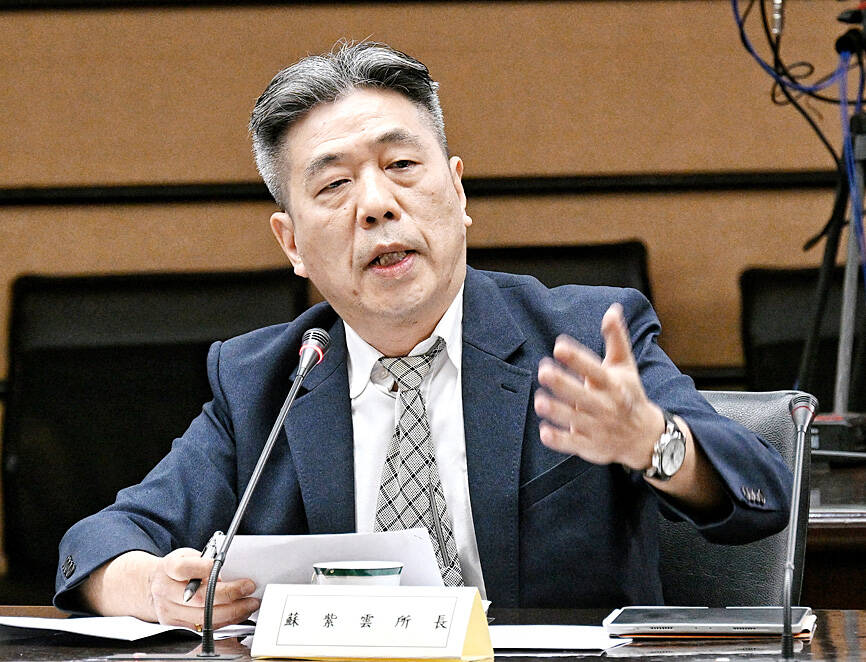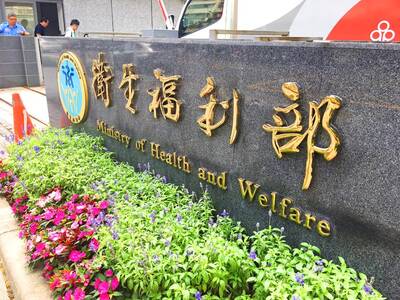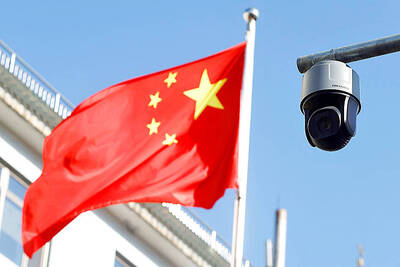The Taiwan Relations Act is supported by both of the major political parties in the US and is the cornerstone of cross-strait peace and stability, Taiwanese experts said yesterday.
The bill, which was promulgated 45 years ago, also encapsulates the US’ Indo-Pacific strategy and cannot be easily swayed by Chinese lobbying, they said.
Shih Hsin University assistant professor Wu Chu-meng (吳巨盟) said that the bill has provided the basis for commercial, cultural and other interactions between Taiwan and the US since 1979.

Photo: Fang Ping-chao, Taipei Times
It has helped the US expand its diplomatic policies, and helped maintain peace, security and stability in the western Pacific region, Wu said.
The Democratic and Republican parties recognize that a rising China threatens the US, and Washington is responding by adopting “derisking” strategies and policies, especially economically and in the technology sector, he said.
Institute for National Defense and Security Research fellow Su Tzu-yun (蘇紫雲) said that the bill is the most critical legal foundation upholding Taiwan-US ties, and defines bilateral political and security collaboration.
Support for Taiwan is strong across party lines in the US Congress and it would continue regardless of who wins November’s US presidential election, Su said.
“It can be predicted that Washington’s trust and security pledges to Taiwan will not change,” he said, adding that despite the support, Taipei should boost its defense capabilities.
Separately, National Cheng Kung University professor of political science Hung Chin-fu (洪敬富) said that the Chinese Communist Party’s (CCP) arrangement for former president Ma Ying-jeou (馬英九) to meet with Chinese President Xi Jinping (習近平) yesterday was pure political manipulation.
The Ma-Xi meeting in Beijing was held in quick succession to American Institute in Taiwan Chair Laura Rosenberger’s visit to China and on the same day as a US-Japan summit, Hung said.
The location — Beijing’s Great Hall of the People, the heart of the CCP’s power — set the second Ma-Xi meeting apart from the first, which was in Singapore, a neutral location, he said.
Ma has made himself a template for Chinese “united front” rhetoric, Hung said.
Xi has made no secret that his ultimate goal is to see Taiwan unified with China and inviting someone of influence such as Ma to laud China and prompt peaceful unification is a move that severely undermines Taiwanese sovereignty, Hung said.
This act is a form of capitulation, he said, adding that Taiwanese would not want to “be of one mind” with a China that is harassing Taiwan daily.

MEDICAL: The bills would also upgrade the status of the Ethical Guidelines Governing the Research of Human Embryos and Embryonic Stem Cell Research to law The Executive Yuan yesterday approved two bills to govern regenerative medicine that aim to boost development of the field. Taiwan would reach an important milestone in regenerative medicine development with passage of the regenerative medicine act and the regenerative medicine preparations ordinance, which would allow studies to proceed and treatments to be developed, Deputy Minister of Health and Welfare Victor Wang (王必勝) told reporters at a news conference after a Cabinet meeting. Regenerative treatments have been used for several conditions, including cancer — by regenerating blood cells — and restoring joint function in soft tissue, Wang said. The draft legislation requires regenerative treatments

POLICE INVESTIGATING: A man said he quit his job as a nurse at Taipei Tzu Chi Hospital as he had been ‘disgusted’ by the behavior of his colleagues A man yesterday morning wrote online that he had witnessed nurses taking photographs and touching anesthetized patients inappropriately in Taipei Tzu Chi Hospital’s operating theaters. The man surnamed Huang (黃) wrote on the Professional Technology Temple bulletin board that during his six-month stint as a nurse at the hospital, he had seen nurses taking pictures of patients, including of their private parts, after they were anesthetized. Some nurses had also touched patients inappropriately and children were among those photographed, he said. Huang said this “disgusted” him “so much” that “he felt the need to reveal these unethical acts in the operating theater

Taiwanese should be mindful when visiting China, as Beijing in July is likely to tighten the implementation of policies on national security following the introduction of two regulations, a researcher said on Saturday. China on Friday unveiled the regulations governing the law enforcement and judicial activities of national security agencies. They would help crack down on “illegal” and “criminal” activities that Beijing considers to be endangering national security, according to reports by China’s state media. The definition of what constitutes a national security threat in China is vague, Taiwan Thinktank researcher Wu Se-chih (吳瑟致) said. The two procedural regulations are to provide Chinese

WARFARE: The PLA aims to use space-based capabilities to enhance its force projection to make the Indo-Pacific region too costly for the US to protect, experts said China is rapidly building space capabilities to be able to launch precision strikes on Taiwan, the US and its allies, US Space Force leaders said at a recent conference in London. China is developing counterspace warfare capabilities including GPS jamming systems and anti-satellite missiles at “breathtaking speed,” said General Stephen Whiting, commander of the US Space Command. In the past six years, Beijing tripled its number of dedicated intelligence, surveillance and reconnaissance satellites, while rapidly fielding dual-use satellites, Whiting said, adding that the capabilities are honed for detecting movements at sea. The Chinese People’s Liberation Army (PLA) might have already achieved substantial benefits